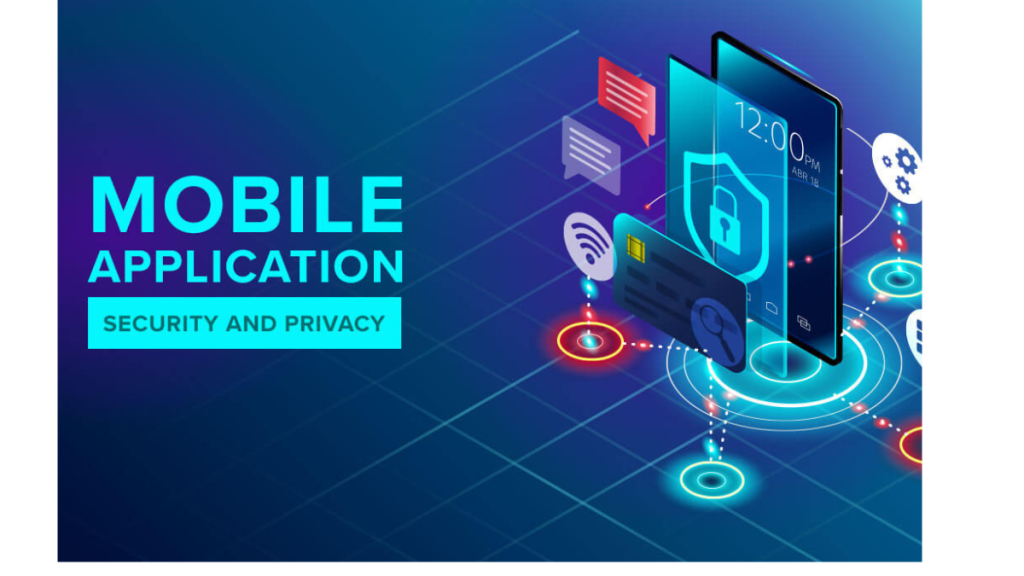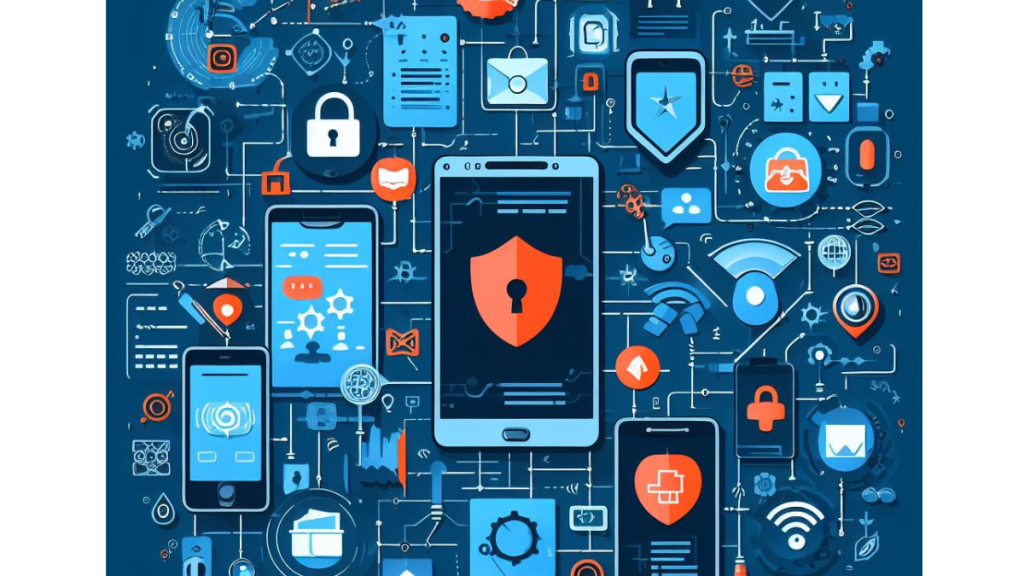In the fast-paced realm of technology, our lives are intricately woven with digital threads, from the mobile apps that streamline our tasks to the online platforms shaping our interactions. However, this digital age, marked by unparalleled convenience, also exposes us to potential security vulnerabilities, making protecting our mobile app data and online privacy paramount.
Today- Mobile App Security Is Essential
Mobile apps have become indispensable, revolutionizing communication, work, and daily routines. Yet, with the increasing reliance on mobile applications, the security risks to user data have surged. To navigate this landscape, understanding and prioritizing mobile app security is essential.
Understanding Mobile App Security

Mobile app security involves implementing measures to safeguard sensitive information transmitted and stored through these applications. In a world of cyber threats, robust security measures are crucial to protect user privacy. These measures encompass authentication mechanisms, data encryption, secure communication protocols, and vigilant storage practices.
Engaging with a reputable mobile app development company is advisable to guarantee optimal mobile app security. Seasoned developers can ensure applications adhere to the highest security standards, fostering user trust.
Common mobile app security threats and best practices

The widespread use of mobile apps brings forth an array of security threats that must be understood and addressed. Here are common threats and recommended best practices:
Illegal Access and Data Breach:
- Implement robust authentication mechanisms.
- Secure sensitive data at rest and in transit.
- Regularly update and patch apps to address vulnerabilities.
Malicious software and viruses:
- Employ stringent app vetting processes.
- Regularly scan apps for malware using antivirus software.
- Encourage users to install and update mobile security apps.
Middle-man attacks:
- Use secure communication protocols like HTTPS/TLS.
- Implement certificate pinning to prevent interception.
Unsecure Data Storage:
- Encrypt sensitive data stored on the device.
- Avoid storing critical information locally; use secure tokenization or server-side storage.
Unintentional Data Leakage:
- Implement proper access controls within the app.
- Minimize data collection and regularly review app permissions.
- Conduct thorough testing to identify and fix data leakage vulnerabilities.
Jailbreaking/Rooting:
- Detect and respond to jailbroken or rooted devices.
- Implement runtime integrity checks.
Reverse Engineering:
- Apply code obfuscation techniques.
- Implement tamper detection mechanisms.
- Use binary protection tools.
Social Engineering and Phishing Attacks:
- Educate users about social engineering techniques.
- Implement in-app security features.
- Regularly update and educate users about potential phishing threats.
Denial of Service (DoS) Attacks:
- Implement rate limiting and throttling mechanisms.
- Use server-side defences like firewalls and load balancers.
Building Secure Mobile Apps: A Holistic Approach

Building secure mobile apps requires a comprehensive strategy, prioritizing robust security measures throughout development. Considerations include:
Secure Coding Practices:
- Validate user input and implement proper session management.
Testing Methodologies:
- Conduct penetration testing, security code reviews, and comprehensive quality assurance.
Encryption, Authentication, and Authorization:
- Implement robust encryption algorithms.
- Incorporate authentication mechanisms and authorization protocols.
Secure Backend Infrastructure:
- Ensure the security of the backend infrastructure.
- Implement secure communication protocols between the app and the server.
Third-Party Integration:
- Exercise caution when integrating third-party libraries or APIs.
- Regularly update and monitor integrated components.
User Education and Awareness:
- Empower users with knowledge about mobile app security best practices.
- Please encourage them to install security updates and use strong, unique passwords.
Ongoing Maintenance and Updates:
- Continuously monitor and update the app to address emerging security threats.
Protecting Your Digital Footprint: A Guide to Online Privacy

In an era where personal information is more accessible, online privacy is a growing concern. The surge in online activity has led to the widespread collection, sharing, and storage of personal data. Here are practical steps to fortify your online privacy to navigate this digital landscape safely.
Practical Steps for Online Privacy:
Use Strong Passwords:
- Craft passwords with a mix of letters, numbers, and special characters.
- Avoid easily guessable information and use different passwords for each online account.
Keep Your Software Up-to-date:
- Regularly update your operating system, web browsers, and apps to protect against vulnerabilities.
Use Virtual Private Networks (VPNs):
- Encrypt your internet connection to make it harder for others to intercept your data.
- VPNs can hide your IP address and location, enhancing privacy.
Be Mindful of What You Share:
- Limit the personal information shared online.
- Avoid sharing sensitive details like your social security number, credit card number, or home address.
- Exercise caution with photos and posts on social media.
Use Two-Factor Authentication:
- Add an extra layer of security by requiring a second form of identification, such as a fingerprint or a code sent to your phone.
Be Skeptical of Unsolicited Communication:
- Watch out for phishing scams and unsolicited requests for personal information.
- Legitimate companies will not solicit personal information through email or text messages.
Be Smart with Public Wi-Fi:
- Avoid accessing sensitive information while connected to unsecured public Wi-Fi networks.
Limit Data Shared with Apps and Websites:
- Review privacy policies before downloading apps or signing up for websites.
- Be selective about the apps and websites you use and limit the personal data you share.
conclusion:
Safeguarding your data is non-negotiable in our digitized world. Whether mastering the intricacies of mobile app security or fortifying your online privacy, adopting a proactive approach ensures you navigate the digital landscape securely. Remember, it’s an ongoing process, and staying vigilant is critical as technology evolves.
